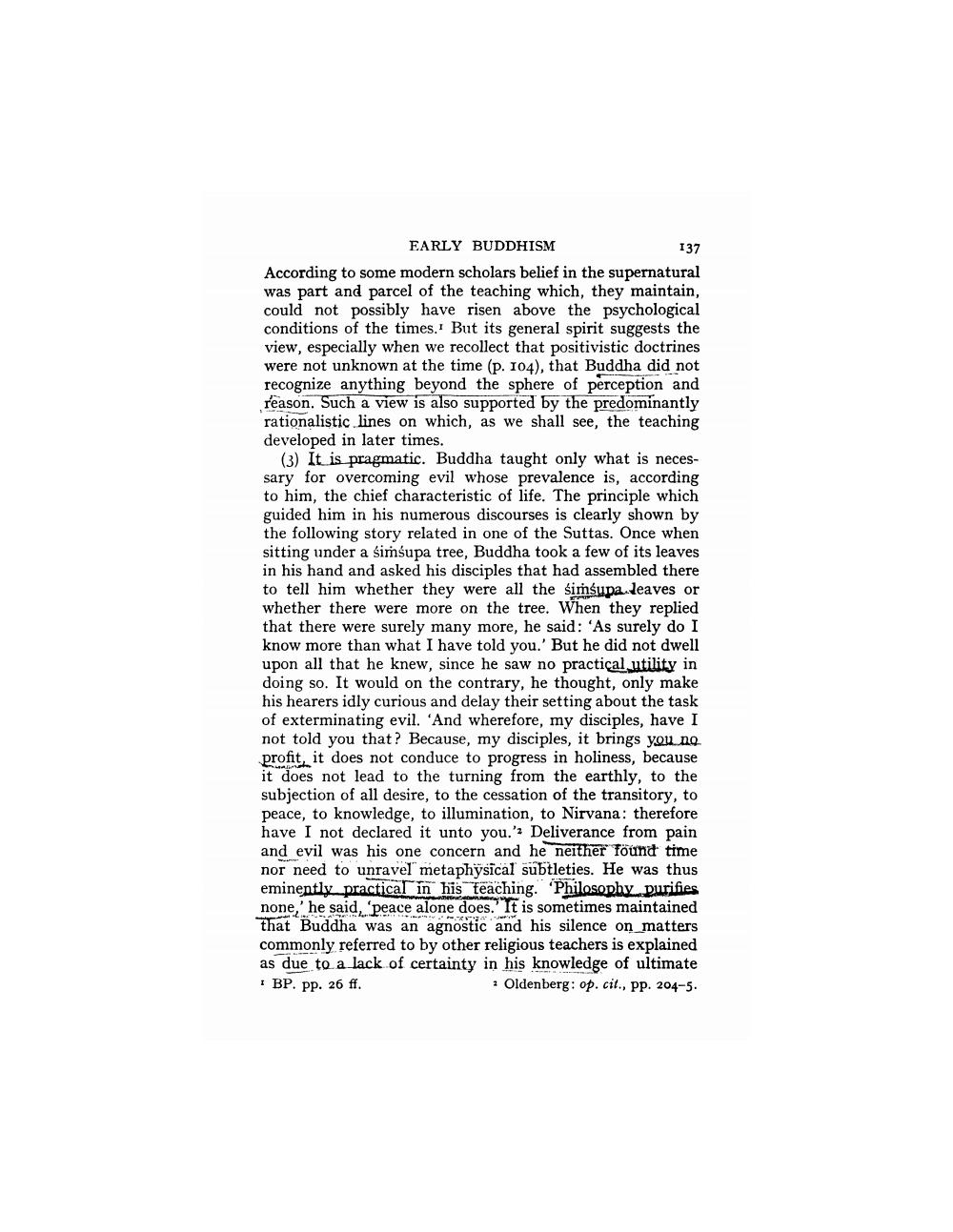________________
EARLY BUDDHISM
137 According to some modern scholars belief in the supernatural was part and parcel of the teaching which, they maintain, could not possibly have risen above the psychological conditions of the times. But its general spirit suggests the view, especially when we recollect that positivistic doctrines were not unknown at the time (p. 104), that Buddha did not recognize anything beyond the sphere of perception and reason. Such a view is also supported by the predominantly rationalistic lines on which, as we shall see, the teaching developed in later times.
(3) It is pragmatic. Buddha taught only what is necessary for overcoming evil whose prevalence is, according to him, the chief characteristic of life. The principle which guided him in his numerous discourses is clearly shown by the following story related in one of the Suttas. Once when sitting under a simśupa tree, Buddha took a few of its leaves in his hand and asked his disciples that had assembled there to tell him whether they were all the simsupa leaves or whether there were more on the tree. When they replied that there were surely many more, he said: 'As surely do I know more than what I have told you.' But he did not dwell upon all that he knew, since he saw no practical utility in doing so. It would on the contrary, he thought, only make his hearers idly curious and delay their setting about the task of exterminating evil. 'And wherefore, my disciples, have I not told you that? Because, my disciples, it brings you no. profit, it does not conduce to progress in holiness, because it does not lead to the turning from the earthly, to the subjection of all desire, to the cessation of the transitory, to peace, to knowledge, to illumination, to Nirvana: therefore have I not declared it unto you.': Deliverance from pain and evil was his one concern and he neither found time nor need to unravel" metaphysical subtleties. He was thus eminently_practical in his teaching. Philosophy. Durifies none,' he said, 'peace alone does.' It is sometimes maintained that Buddha was an agnostic and his silence on matters commonly referred to by other religious teachers is explained as due to a lack of certainty in his knowledge of ultimate BP. PP. 26 ff.
Oldenberg: op. cit., pp. 204-5.




